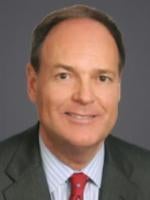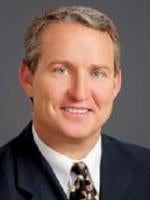While voters heading to the polls this November are likely focused on the neck-and-neck presidential election and several tight congressional races, voters in Alaska, Missouri, and Nebraska are further considering ballot measures to establish paid sick leave, which could substantially impact both employees and employers.
Quick Hits
- Voters in three states—Alaska, Missouri, and Nebraska—will have a chance to vote on establishing paid sick leave in their states.
- The states could join the eighteen states and Washington, D.C., that already have paid sick leave laws.
- Election day is Tuesday, November 5, 2024.
Each state has proposed measures to ensure workers have access to paid time off for health-related needs, reflecting a growing national trend toward expanding worker benefits. Already, eighteen states and Washington, D.C., have laws providing earned paid sick leave, including three states—Illinois, Maine, and Nevada—that have paid leave for “any reason,” according to state law summaries on the Ogletree Deakins Client Portal. (In addition, Virginia has paid sick leave for certain home health workers.)
Here’s an overview of the three paid sick leave initiatives on the ballots this year. Note that the Alaska and Missouri ballot initiatives also contain a minimum wage component.
Alaska
Alaska voters will have the chance to vote for a paid sick leave system with Alaska Ballot Measure 1, the “Minimum Wage Increase and Paid Sick Leave Initiative.” If passed, this initiative would increase the state’s minimum wage, allow employees to accrue paid sick leave, and restrict captive audience meetings.
Under the proposed initiative, employees would accrue one hour of paid sick leave for every thirty hours worked. Employers with fifteen or more employees would be required to provide up to fifty-six hours annually and employers with fewer than fifteen employees would be required to provide up to forty hours. Employees would be able to use paid sick leave for their own mental or physical illness, injury, medical diagnosis, treatment, or preventive care, as well as to care for a family member or address issues related to domestic violence, sexual assault, or stalking. Employers would be able to require reasonable documentation for absences exceeding three consecutive workdays.
Employees would be permitted to use the leave in the “smaller of hourly increments or the smallest increment that the employer’s payroll system uses to account for absences or use of other time.” Further, employees would be able to carry over unused sick leave into the following year without limitations.
Notably, the initiative would allow employees who transfer within the same employer or are rehired within six months to retain their accrued sick leave. It would also protect employees from retaliation or discrimination for using paid sick leave and require employers to notify them of their entitlements.
Exemptions from the paid sick leave benefit include employment of apprentices, part-time summer camp workers, work therapy employment in substance abuse facilities, prisoners, certain agricultural and fishing employees, nonprofit workers, domestic service employees, and newspaper delivery persons.
Employees would start accruing paid sick time on July 1, 2025.
Missouri
Voters in Missouri will consider a citizen-initiated ballot measure Missouri Proposition A, the “Minimum Wage and Earned Paid Sick Time Initiative,” which would increase the state minimum wage to $15.00 per hour and provide up to seven days of paid sick leave.
Missouri’s initiative would allow employees to accrue one hour of paid sick leave for every thirty hours worked. Larger employers, those with fifteen or more employees, would be required to provide at least seven paid sick days (fifty-six hours) annually and employers with fewer than fifteen employees would be required to provide at least five days. Employees would be able to carry over up to eighty hours of unused sick leave to the following year.
The initiative would allow leave to be used for personal illness, injury, medical diagnosis, or treatment, including mental health, to care for a sick family member, or for public health emergencies where the employee’s place of business is shut down or where the employee needs to care for a child whose school has been closed. The initiative would further provide safe leave for necessary absences due to an employee or an employee’s family member having been the victim of domestic violence, sexual assault, or stalking.
The initiative outlines several exemptions, including volunteers, short-term educational workers, babysitters, and certain government positions. It includes protections against employer retaliation and mandates that employees be informed of their rights to paid sick leave.
Employees would start accruing paid sick time on May 1, 2025.
Nebraska
Nebraska Initiative 436, the “Nebraska Healthy Families and Workplaces Act” (NHFWA), would require employers to provide up to seven days of earned paid sick leave for workers to use for their own illnesses or to care for family members.
Specifically, the initiative would require employers with at least twenty employees to provide up to seven days (fifty-six hours) of earned paid sick leave per year and employers with fewer than twenty employees to provide five days (forty hours) per year. Employers with paid time off policies that provide for an equivalent, or greater, amount of leave that can be used for the same purposes and under the same conditions as the NHFWA would not be required to provide additional paid sick time.
Employees would accrue one hour of paid sick leave for every thirty hours worked, up to a maximum accrual of fifty-six hours for larger employers and forty hours for smaller employers. Employees would be able to carry over any unused sick leave into the following year without limitation or an employer may pay out accrued unused sick time at the end of the year. Regardless, employers may limit an employee’s annual use to fifty-six hours or forty hours, consistent with the required annual accrual.
Under the initiative, employees would be able to use accrued paid sick leave for their own mental or physical illnesses, injuries, or health conditions, as well as to care for a family member. Notably, the initiative would also cover closures due to public health emergencies and the need to self-isolate or care for a family member exposed to a communicable disease.
The initiative would be implemented by the Nebraska Department of Labor, with the commissioner of Labor responsible for enforcement.
Employees would start accruing paid sick time on October 1, 2025.








 />i
/>i

